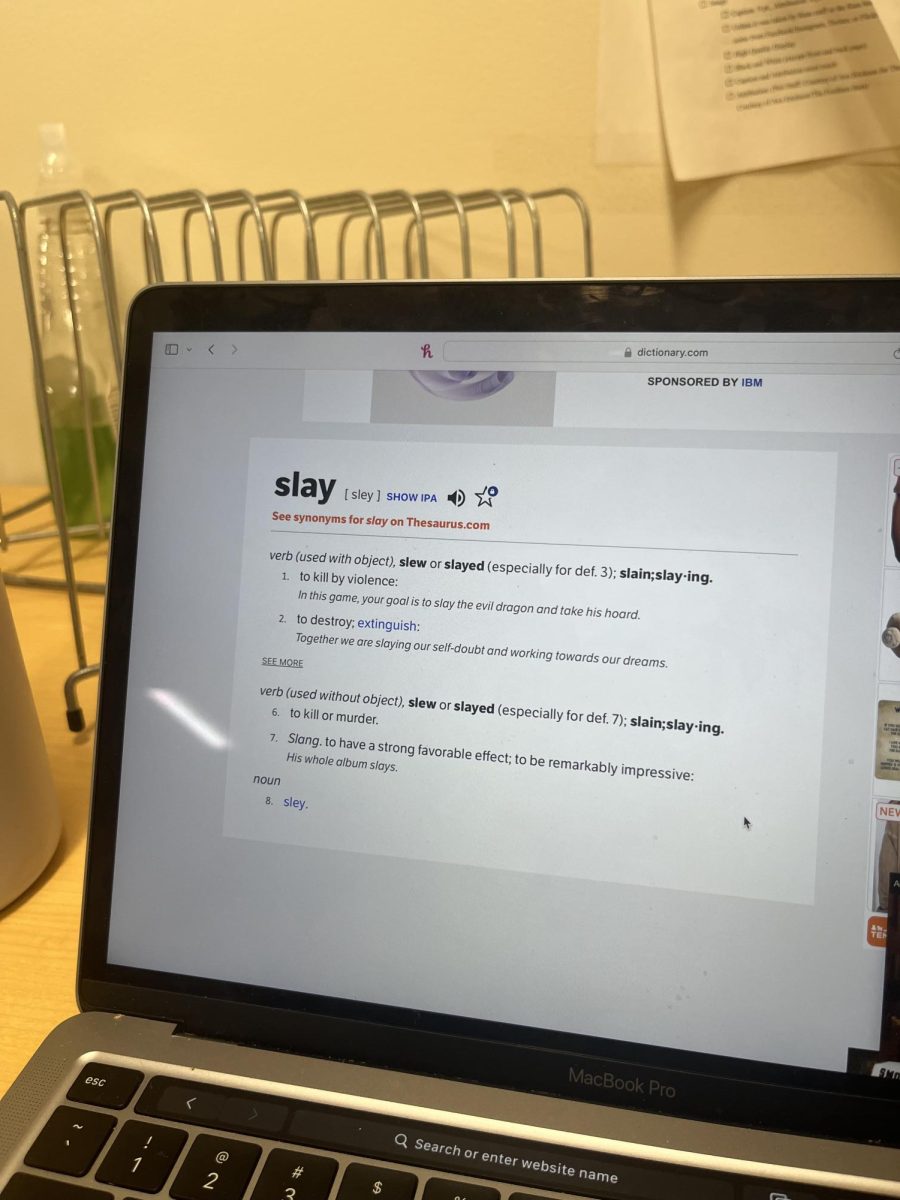“The intersection of language, learning, and culture is boundless, and we recognize that words have the power to shape thoughts, bridge gaps, and reflect our ever-evolving society,” said John Kelly, vice president of editorial at Dictionary.com, in a press statement regarding the website’s semi-annual New Words announcement. Dictionary.com added 1,228 revised definitions, 173 definitions and 173 entirely new entries. This update included Gen Z slang, with terms like “girl dinner” and “bed rotting” added to the popular online dictionary. However, Dictionary.com’s choice to add modern language introduces the discussion of whether or not these words deserve an official place in a site of record.
How do we decide what words are deserving of a place in our lexicon or which words we toss out in favor of “correct” language? The answer is rooted in the long history of linguistics. Language is an ever-changing structure of any society or culture, as it is the basis of communication between people. As cultures and ideas are exchanged, language evolves to better reflect and better represent the intersections. However, these choices are not always collective and instead often ignore the linguistic patterns of marginalized groups, like the Black or LGBTQ+ communities. As such, modern slang words and phrases, which often stem from these communities, are not always officially recognized and accepted by more traditional dictionaries, like the Oxford English Dictionary (OED) or Merriam-Webster. The move by Dictionary.com to define new Gen Z phrases is notably inclusive, progressive and entirely necessary.
Although this word is not an entirely recent addition, the popular term “slay” is a perfect example of the differences in linguistic acknowledgment of certain words. The current usage of “slay” as a general positive affirmation can be traced back to Black and Latinx LGBTQ+ communities in the ’70s and ’80s. Prior to this use, “slay” had a variety of uses, ranging from a verb to signal an action of violence to an instrument used in weaving. If you search for the word on Dictionary.com, one definition lists the slang usage of the term: “to impress strongly and favorably; overwhelm, especially by humor.” On the other hand, if you search for “slay” in the OED, there is no mention of the modern slang usage — though you can find obsolete Old English uses of the word (“Some kind of fabric” is one definition).
“Slay” is one of the most recognizable Gen Z terms that has made its way from social media culture into commonplace use. Beyond this word, however, are a myriad of other terms and phrases that have either taken on new meaning in a modern context or have simply been newly created. While not all of these words have picked up enough traction to be considered as commonplace as “bussin” or “the ick,” they still hold cultural significance. While I do not believe it entirely necessary to add every single word or phrase created, when certain ones become so commonplace that they are regularly heard and seen, there exists an expectation that these words will be held in a collective record.
Dictionaries and official records of language have a duty to reflect the linguistic choices of all people who speak a language. Not only is excluding words harmful, but it also limits the education of people who may be unfamiliar with newer terms. In the case of Gen Z slang, older populations who interact with Gen Z on a daily basis will undoubtedly find Dictionary.com’s addition of new words to be useful. How many times have you used a slang term around an older parent, boss or professor, only to be met with a confused look? Adding new words to a record of language not only promotes learning surrounding evolving language but also encourages regular and casual usage of these words, effectively working to bridge a gap between generations.
A “proper” dictionary like the OED claims to have authority over the English language. However, if a dictionary cannot accurately represent the existence of modern slang, as Dictionary.com has done, they fall victim to elitist views on language and inherently exclude certain populations from achieving any official status in the English language. Language is not only a tool for communication but a means of understanding people and groups different from our own. It impacts the way we perceive the world and reflects evolving understandings of how we interact with others. As an inherently social structure, language cannot be expected to stay stagnant; by adding new words, Dictionary.com has acknowledged and invited changes to our modern vernacular, keeping up with Gen Z and helping others try to do the same.
Cailee Zeraat, FCRH ’25, is an English major from Fairfax, Va.















































































































































































































